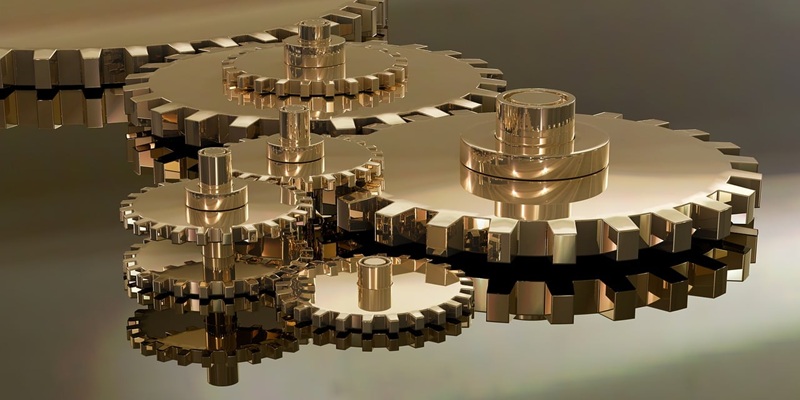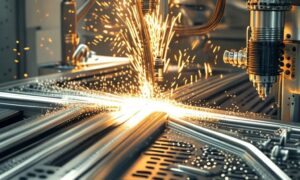Precision engineering is the backbone of modern manufacturing and industrial processes. By focusing on accuracy, efficiency, and reliability, it transforms complex tasks into seamless operations. Businesses across industries rely on precision engineering to enhance productivity, reduce waste, and deliver superior quality. But how exactly does it create such satisfying processes? Let’s explore the key aspects that make precision engineering indispensable.
The Role of Accuracy in Streamlining Operations
At the heart of precision engineering lies an unwavering commitment to accuracy. Every component, machine, or system must meet exact specifications to function flawlessly. Even the smallest deviation can lead to inefficiencies, defects, or failures.
For example, in aerospace engineering, a turbine blade must be manufactured to micrometer-level precision. Any imperfection could compromise engine performance or safety. Similarly, in medical device manufacturing, surgical instruments must adhere to strict tolerances to ensure patient safety.
By eliminating errors early in production, precision engineering minimizes rework and delays. This not only speeds up processes but also enhances overall satisfaction for engineers, manufacturers, and end-users alike.
Efficiency Through Advanced Automation
Another reason precision engineering creates satisfying processes is its reliance on automation. Advanced CNC machines, robotics, and AI-driven systems perform repetitive tasks with unmatched consistency.
Unlike manual labor, automated systems do not suffer from fatigue or human error. They can operate 24/7 while maintaining the same level of precision. This leads to faster production cycles and lower operational costs.
Moreover, automation allows engineers to focus on innovation rather than mundane tasks. By delegating repetitive work to machines, companies can allocate human talent to problem-solving and creative improvements. This shift not only boosts morale but also drives continuous process enhancement.
Reducing Waste and Enhancing Sustainability
Waste reduction is a major benefit of precision engineering. Traditional manufacturing often involves excess material use, energy consumption, and defective outputs. Precision techniques, however, optimize resource utilization.
For instance, additive manufacturing (3D printing) builds components layer by layer, using only the necessary material. This contrasts with subtractive methods that carve out parts from larger blocks, generating significant scrap.
Additionally, precision engineering improves energy efficiency. Smart sensors and IoT-enabled devices monitor equipment performance in real-time, adjusting parameters to minimize power consumption. As sustainability becomes a global priority, these practices make processes not only satisfying but also environmentally responsible.
Ensuring Reliability in High-Stakes Industries
Industries such as automotive, aerospace, and healthcare demand absolute reliability. A single malfunction can have catastrophic consequences. Precision engineering ensures that every part functions as intended under extreme conditions.
Take automotive braking systems, for example. Calipers, rotors, and pads must work in perfect harmony to ensure driver safety. Even a minor flaw could lead to brake failure. Through rigorous testing and tight tolerances, precision engineering guarantees dependable performance.
Similarly, in semiconductor manufacturing, nanometer-scale precision is required for microchip production. The slightest misalignment could render an entire batch useless. By maintaining strict quality control, precision engineering prevents costly recalls and reinforces consumer trust.
Enhancing User Experience Through Customization
One of the most satisfying aspects of precision engineering is its ability to deliver customized solutions. Mass production often limits personalization, but advanced techniques enable tailored products without sacrificing efficiency.
In healthcare, for instance, prosthetics and dental implants are now designed using patient-specific data. 3D scanning and CAD modeling ensure a perfect fit, improving comfort and functionality. This level of personalization was unimaginable just a few decades ago.
Even in consumer goods, precision engineering allows for bespoke designs. From custom-fit athletic shoes to personalized electronics, manufacturers can meet individual preferences while maintaining high production speeds. This fusion of customization and efficiency enhances customer satisfaction significantly.
The Prospect of Precision Engineering
As technology transforms, so does precision engineering. Emerging trends like AI-driven predictive maintenance, quantum computing, and nanotechnology promise even greater accuracy and efficiency.
AI algorithms can now predict equipment failures before they occur, reducing downtime. Quantum computing may soon revolutionize material science, enabling the creation of stronger, lighter, and more durable components. Meanwhile, nanotechnology opens doors to microscopic machines capable of performing ultra-precise tasks.
These advancements will further refine industrial processes, making them faster, smarter, and more satisfying for everyone involved.
Conclusion
Precision engineering is more than just a technical discipline—it’s a catalyst for seamless, efficient, and enjoyable processes. By prioritizing accuracy, leveraging automation, reducing waste, ensuring reliability, and enabling customization, it transforms industries and improves lives.
Furthermore, the role of precision engineering will only grow. Businesses that embrace these principles will not only optimize their operations but also deliver unparalleled satisfaction to employees and customers alike.





























